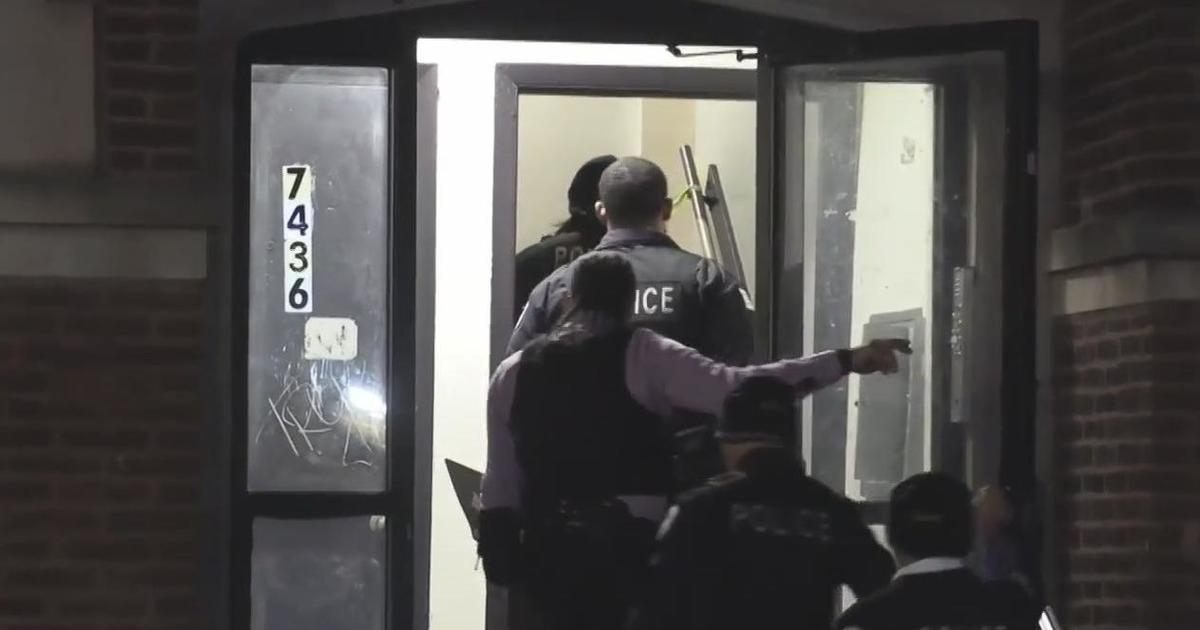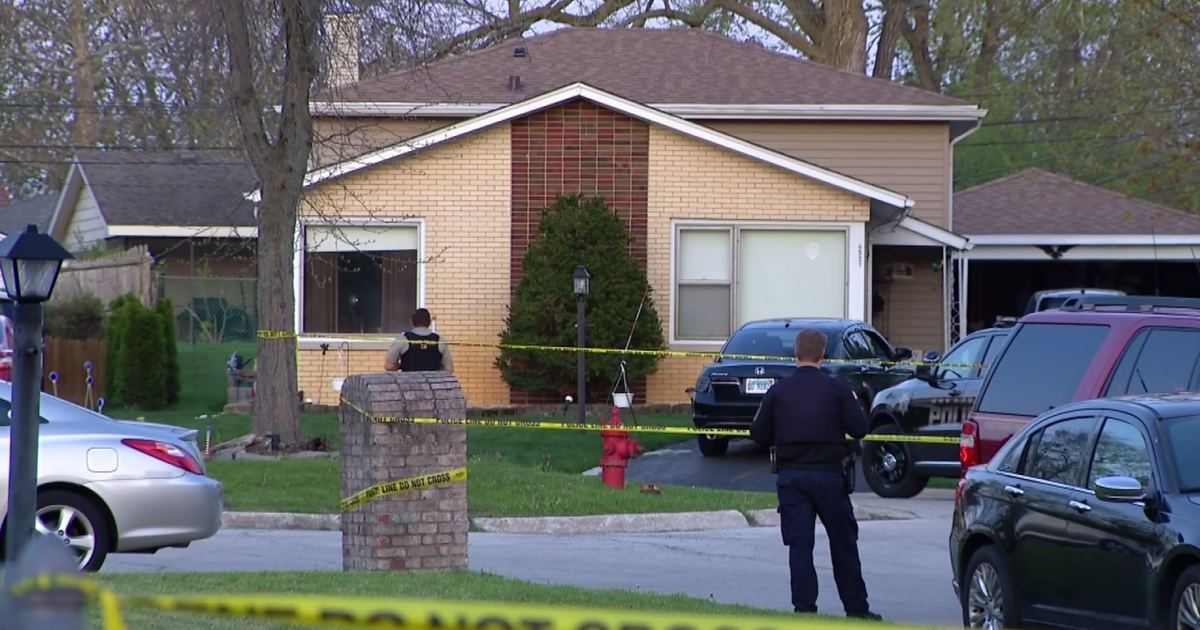Kirk Recovering After Stroke, But Could Face Long Road To Recovery
Updated 01/23/12 - 4:49 p.m.
CHICAGO (CBS) -- U.S. Sen. Mark Kirk (R-IL) suffered a stroke over the weekend and has undergone surgery at Northwestern Memorial Hospital.
Dr. Richard Fessler, the neurosurgeon who treated Kirk, said the surgery went well and he said he was "very happy" with Kirk's status, although he said Kirk will likely have long-term difficulty using his left arm.
Kirk began suffering dizziness and a headache on Saturday and checked in to Northwestern Lake Forest Hospital. He was transferred to Northwestern Memorial Hospital on Sunday, according to Fessler.
Sunday night, Kirk's neurological condition began deteriorating, so doctors were forced to perform a three-hour surgery to remove a 4-inch by 8-inch piece of the senator's skull to reduce swelling on his brain, caused by the stroke.
LISTEN: WBBM Newsradio's Steve Miller reports
Podcast
LISTEN: WBBM Newsradio's Regine Schlesinger reports
Podcast
Asked how soon Kirk might be able to return to work, Fessler said it's "way too soon to try and predict that."
"Senator Kirk is young, was very healthy and in good shape and he's very strong, so all of those things are in his favor," Fessler said. "I don't know if he's a cheeseburger eater or not, but if you've had a stroke, yes, there are lifestyle changes, because it affects at least one side of your body and that forces you to change your lifestyle somewhat."
WATCH: Full Press Conference By Neurosurgeon Who Treated Kirk
Fessler said Kirk suffered the stroke on the right side of his brain, which controls the left side of his body.
"What that means is that it will affect his ability to move his left arm, possibly his left leg and possibly … involve some facial paralysis," Fessler said. "I think the use of his left arm is going to be very difficult. I'm hopeful for the use of his left leg."
Fessler said if the stroke had occurred on the left side of Kirk's brain, the effects could have been more severe, because the left side of the brain controls most cognitive functions.
"Fortunately, the stroke was not the left side of his brain, in which case, it would affect his ability to speak, understand and think. So we're very hopeful that when we get through all of his recovery, all of those functions will be intact and that he should be able to do very well," Fessler said. "Senator Kirk's job is cerebral and I believe that the functions that he requires to do his job are going to be fine."
LISTEN: WBBM Newsradio Political Editor Craig Dellimore reports
Podcast
Richard Goldberg, a spokesman for Kirk, read a statement from the Kirk family:
"We are very grateful for the excellent treatment and care provided by the doctors and their medical teams at both Lake Forest Hospital and Northwestern Memorial Hospital. We are equally grateful for the love and support of our family and friends. We are very encouraged by the prognosis. Mark has always shown great courage and resilience and we are confident that the fighter in him will prevail."
But Fessler, a realist, was more guarded about complete recovery.
"I think his prospects for a full mental recovery are very good. I think his prospects for a full physical recovery, particularly on the left side of his body, are not great."
Fessler said Kirk suffered an ischemic stroke, the most common type of stroke. According to the American Stroke Association's website, ischemic strokes are the most common form of stroke, accounting for about 87 percent of all cases. They are the result of an obstruction within a blood vessel that supplies blood to the brain, caused by fatty deposits in the blood vessels.
American Stroke Association: Facts On Ischemic Strokes
Kirk will remain in intensive care for the next several days as doctors wait for the swelling on his brain to go down so they can replace the section of his skull that was removed. Fessler said it would be a few weeks until that can happen.
At that point, Kirk will be able to go into rehabilitation, a process to try to restore as much function as possible and learn to live with whatever limits might remain, Fessler said.
When Kirk was removed from sedation, Fessler said he was able to follow commands and seemed to recognize people around him.
"He follows commands briskly. He seems to know who's around him. That's pretty good," Fessler said.
Kirk, 52, was elected to the U.S. Senate in 2010, winning the seat once held by President Barack Obama. Before that, he spent 10 years in the U.S. House.
Kirk's former chief of staff, Doug O'Brien, said the senator always has taken care of his health.
"Mark's generally in very good health," "He's somebody who spends time in the gym on a regular basis. He swims, he keeps fit and really pays attention to trying to avoid a lot of the pitfalls of being on the campaign trail and having a hectic schedule."
As a U.S. Naval reservist who routinely undergoes fitness assessments, Kirk is probably in better shape than most of his colleagues in Congress.
Dr. James Conners, a neurologist at at Rush University Medical Center, said it's possible there was nothing Kirk could have done to prevent the stroke.
"We have our typical strokes of patients who have high blood pressure, diabetes, high cholesterol that we're trying to treat to prevent a stroke. This is one of those rare causes; about, less than 5 percent of all strokes."
During a White House press briefing, White House press secretary Jay Carney said, "We're obviously concerned about his condition, but wish him a speedy recovery."
Fellow U.S. Sen. Dick Durbin (D-Il) said he was stunned to hear of Kirk's stroke.
"He is young and in good physical condition and I have no doubt he will make a speedy recovery," Durbin said in a written statement. "I have reached out to his staff and offered to do anything I can to help with his Senate duties. Loretta and I will keep Mark and his family in our prayers."
In a statement Monday morning, U.S. Rep. Judy Biggert (R-IL) said: "Senator Kirk is one of Illinois' most dedicated and hard-working champions, and it's hard to imagine that anything could slow him down for long. My thoughts and prayers are with his family, staff, and friends right now. All of us in the delegation are pulling for his full and speedy recovery. Senator Kirk is a fighter, and I am confident he will battle through this."
Illinois State Comptroller Judy Baar Topinka, the former head of the Illinois Republican Party, said she was "stunned and saddened" to learn of Kirk's stroke.
In a prepared statement, Topinka said, "if there is one thing I have learned about Mark over the years, it's that he is a fighter and relentless in his efforts to accomplish a goal. Those attributes will serve him well in working toward a rapid recovery. My thoughts and prayers are with him."
Gov. Pat Quinn also said his prayers go out to Kirk for a speedy recovery.
"We can all take comfort knowing that as a Navy commander, Sen. Kirk knows how to fight and he will fight through this to return to his work on behalf of the people of Illinois as quickly as possible," Quinn said.
Two years ago, Tinley Park teacher Wayne Kendall, then 64, suffered a stroke similar to Kirk's. His left side was also paralyzed. He went through a terrible depression in the hospital.
"It really scares you," he tells CBS 2's Mike Parker. "`Boy, what's happening to me? What am I going to be like? What's life going to be like?'"
But after months of rehabilitation and therapy, Kendall now says he's 95 percent of his old self.
He has a message for other stroke patients: "Just as I did, you can get back to doing whatever you were doing before, but it is hard work."
Kendall says he's even taken up golf again.
According to the American Stroke Association, warning signs of stroke include:
• Sudden numbness or weakness of the face, arm or leg, especially on one side of the body;
• Sudden confusion, trouble speaking or understanding;
• Sudden trouble seeing in one or both eyes;
• Sudden trouble walking, dizziness, los of balance or coordination;
• Or a sudden, severe headache with no known cause.
If you or someone around you experiences one or more of these symptoms, you should call 911 immediately. Time is of the essence when someone has a stroke, as the longer it takes to receive proper treatment, the more severe the damage to the brain will be.
--Todd Feurer, CBS 2 Web Producer. CBS 2's Derrick Blakley, WBBM Newsradio Political Editor Craig Dellimore, WBBM's Steve Miller and WBBM's Regine Schlesinger contributed to this report.



